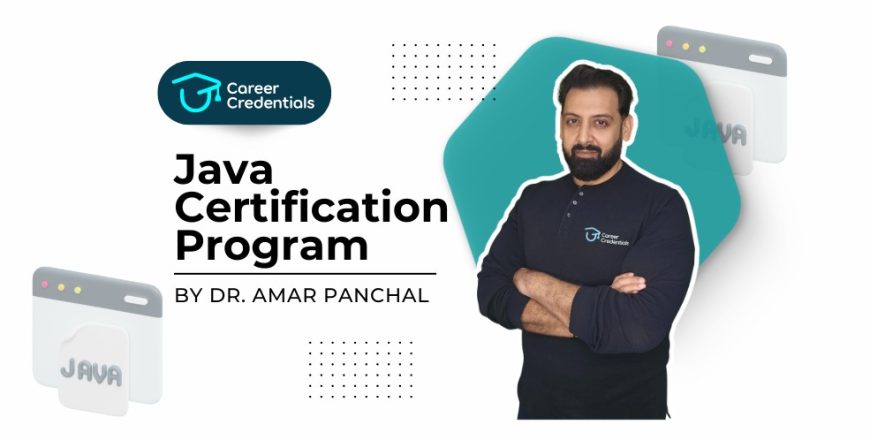Description:
Welcome to our Java Certification Program by Dr. Amar Panchal,This course covers the essentials of Java, from object-oriented programming to data structures, with hands-on projects. Whether you’re a beginner or an experienced coder, you’ll gain practical skills and industry-recognized certification to boost your career.
What You Will Achieve:
Master the Fundamentals: Develop a solid understanding of core Java concepts, including variables, data types, operators, and control flow structures.
Enhance Problem-Solving Skills: Engage in Java programming challenges that build your problem-solving abilities and logical thinking.
Write Basic Java Programs: Gain the confidence to write and execute simple Java programs, handling arithmetic operations, conditional statements, and input/output functions.
Understand Program Structure: Learn the essentials of Java programming, such as loops, methods, conditionals, and object-oriented principles.
Develop Debugging Skills: Acquire the ability to debug your Java code, identify common errors, and implement effective solutions.
What You’ll Learn:
Java Basics: Build a strong foundation in Java syntax and structure.
Data Types and Operators: Understand data types and how to use operators and decision-making constructs to control program flow.
Arrays: Learn to create and manipulate arrays for efficient data handling.
Object-Oriented Programming: Explore OOP principles like encapsulation, inheritance, and polymorphism for robust application design.
Exception Handling: Manage errors using try-catch blocks to improve application reliability.
Multithreading: Discover how to create and manage threads for concurrent task execution.
Who This Course is for
Beginners with No Prior Experience: Individuals who are new to programming and eager to learn Python from scratch.
Students Pursuing Computer Science or Related Fields: Undergraduate or graduate students enrolled in computer science, software engineering, or related programs seeking supplementary learning resources.
Self-taught Programmers: Individuals who have started learning Python through self-study and now seek structured guidance to deepen their understanding.
Junior Developers: Entry-level programmers looking to expand their knowledge and proficiency in Python programming.
Our Instructor
Dr. Amar Panchal Sir
Dr. Amar Panchal possesses over 15+ years of experience in the corporate sector and has dedicated 13+ years to teaching Programming Languages and Technologies. He is the Visionary behind Career Credentials. He holds a master’s in computer science from UTA, which contributes to his expertise in the field. Over the years, he has developed an innovative approach to teaching, simplifying complex subjects with relatable examples. He is recognized for his proficiency in conducting Corporate Training modules across Various Technologies. Dr. Amar Panchal is known for seamlessly blending extensive industry experience with a passion for making learning engaging and accessible.
Resources
For more valuable resources visit Java Notes by Career Credentials and the 100 Most Asked Java QnA by Career Credentials. Prepare to explore our resource portal, Prepcrazy, which offers programming notes, informative books, comprehensive interview question sets, coding platforms, and much more. Feel free to dive into these resources at your convenience!
